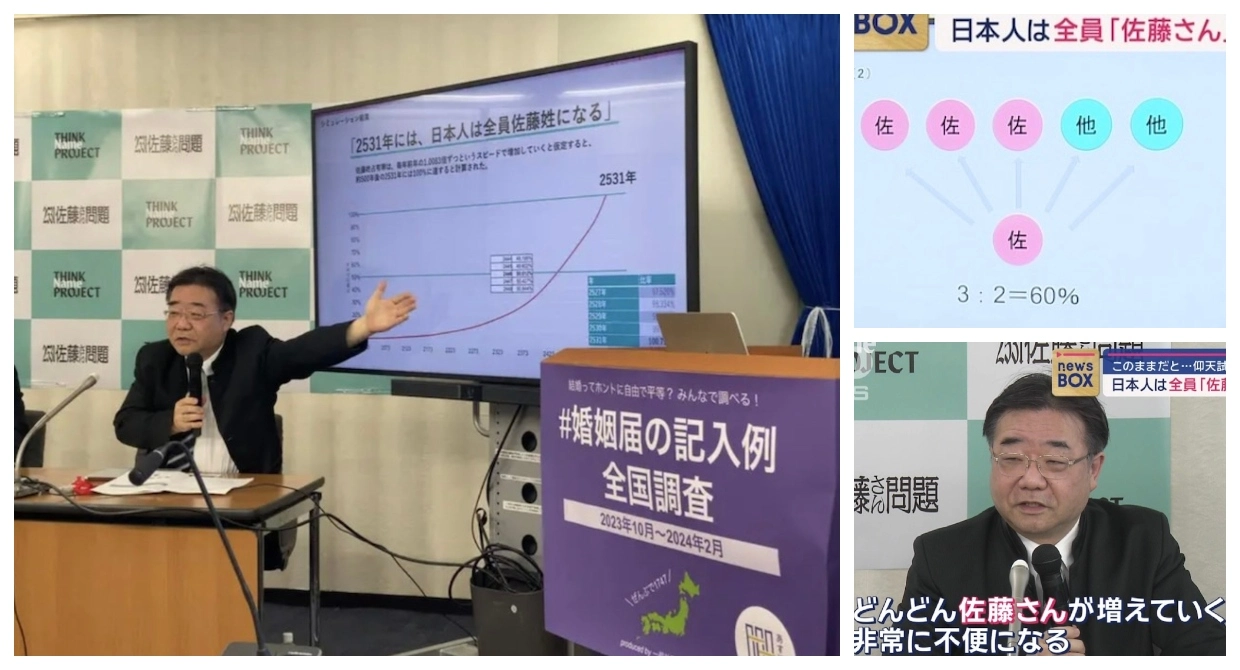- cross-posted to:
- andfinally@feddit.uk
Despite today’s date, this is not an April Fool’s prank. At a press conference in Tokyo last weekend, professor Hiroshi Yoshida from the Tohoku University Research Center for Aged Economy and Society, sounded the alarm bell for a looming crisis. By the year 2531, e



Ah, damn. I wish I could read their paper (article doesn’t mention a translation). That’s incredibly interesting!
From the article, it is because 1.83% of the population in Japan has a last name of Sato (and also I assume probably because of their low immigration). A law in Japan forces married women to take their husband’s name.
I wonder if there is a number like that for the US? Like if 10% of the population had a last name of Smith, would we all become Mr/Ms Smith after x years? Do all countries converge to a single name after a finite amount of years?
Will the whole world be Wang after x million years?
No, because the paper is nonsense and the scientist is probably releasing it for political reasons. Wives being forced to take their husband’s surnames do not directly contribute to a single surname taking over, since there’s a proportionally equal chance that they’re moving away from the Sato surname. The main issue that affects the odds is how many male kids the non-Satos have as well as societal pressures (like this one).
The math is also wrong.
You can’t apply exponential growth to the proportion of a total.
Growing from 1% to 2% (a 100% gain) is equally a reduction from 99% to 98%, a 1.01% drop.
Going from 99% to 100% (a 1.01% gain) is equally a reduction from 1% to 0%, an infinite drop.
Simple exponential modeling is the wrong tool.
Oh… he’s just doing an exponential growth model?? I have trouble understanding how this got traction at all then, he should be embarrassed. Maybe the delivery was tongue-in-cheek?
I assumed there was more interesting happening in that paper. How disappointing.
I assumed there was more behind that graph (I assumed he calculated the coefficient from something more interesting and just slapped it on a graph with like y = exp(\beta_0 x) for his news article)